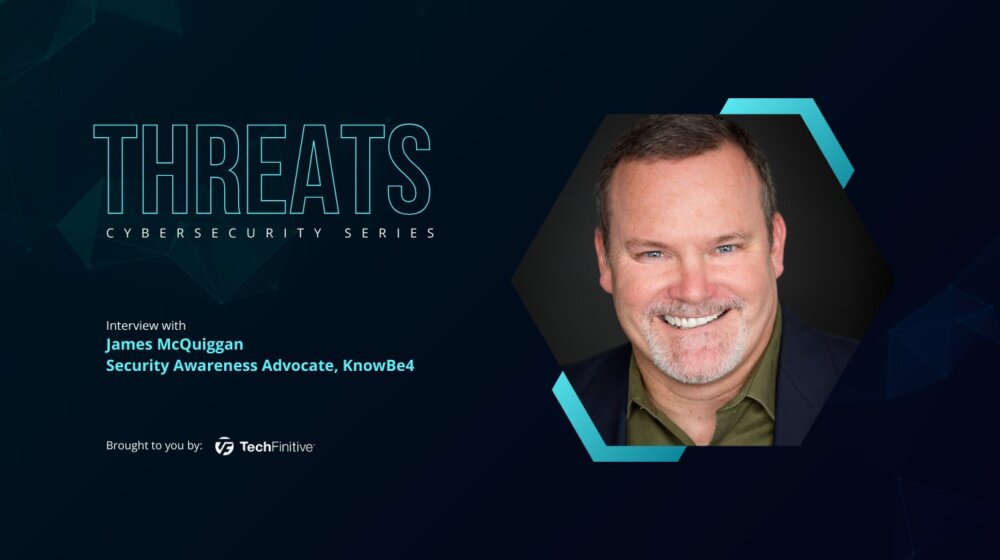
Jorge Tavares, Head of Customer Service & Sales at Medicare: “We shouldn’t forget that the agents who communicate with our customers are the face of the company”
Jorge Tavares, Head of Customer Service & Sales at Medicare, has a big job in a big organisation. Medicare is a Portuguese healthcare company with more than 1.4M customers, so customer service is at the heart of what it provides. And Jorge’s team is responsible for implementing, evaluating and improving the sales and customer experience strategies.
It should be no surprise, then, that he is always looking for ways to improve the ways things work. AI has a growing role to play here, he tells us, but only if it frees up time for agents and gives customers a better experience. In this interview, you’ll hear a lot about getting this balance right.
Another word that crops up time and time again: strategy. “The ultimate objective is increasing customer loyalty to the brand,” Jorge explains. And that means you need to know what customers think. “Having a good voice of the customer (VOC) strategy is fundamental to success because it allows us to align what we have on offer to customer expectations.”
Our huge thanks to Jorge for taking the time to share is 20 years of experience. We hope you find his insights useful in your work!
Recommended reading: Marriott taps into personalisation with Adobe Experience Cloud
Could you please introduce yourself to our audience? What motivated you to pursue a career in customer experience, and how did you embark on your journey in this field?
My journey in customer experience began in 1996 as a Sales Representative at Teleperformance Portugal.
In the following years, I went through all layers of the company’s management until I reached the executive committee in 2010, where I was responsible for projects for the domestic and nearshore markets, in the most diverse sectors of activity and for several LOBs. In 2019, I also took on recruitment responsibilities for all domestic and nearshore market company operations.
2020 was a year of change. I made the decision to join the Medicare family and become responsible for the Customer Experience & Sales Department.
What motivated me to stay in this activity was the growing passion that occurred naturally due to two factors: the management of multicultural teams and the management of complex projects that require ensuring a continuous innovation model in order to optimise results, improve customer experience and consequently increase customer satisfaction.
Bringing teams together towards a common goal and seeing the results of this aggregation is really quite enriching in our activity.
What are your thoughts on the escalating integration of AI in customer experience and its potential influence on the future of customer service at large?
Automation is already an increasingly present reality in our daily lives, so customer experience won’t be an exception to this technological eruption.
Technology has always been a fundamental ally for the success of customer experience strategies as it allows a perfect correlation between procedural optimisation and increased employee and customer satisfaction.
The automation of routine tasks of operation teams frees up resources to deal with more complex tasks that require more personalised treatment. Therefore, this movement will make a very important contribution to increasing the customer experience, whether through faster processing or personalisation whenever necessary.
Often in these more complex tasks, there are also inefficiencies related to the difficulty of agents in quickly accessing the information to be passed on to the customer, which can lead to customer frustration and the consequent deterioration of the customer experience. Here, technology also plays a decisive role as it should be seen as an “assistant” to the agent providing insights, duly contextualised, at all times, facilitating the conduct of the call and reducing employee stress/frustration.
AI is also essential to achieve a reduction in complex data analysis times, generation of more effective predictive data, as well as greater precision in data analysis. This capability allows the provision of critical insights in order to accelerate decision-making by management, allowing significant increases in productivity and customer satisfaction.
I think that in the future companies will be increasingly effective in handling the various interactions with customers with the adoption of new technologies, but it is extremely important not to forget the importance of the human touch as it is fundamental in several moments of the customer experience so that customers satisfaction levels do not deteriorate.
What core values have played a pivotal role in shaping your approach to customer experience?
In my opinion, no CX strategy will be successful if it isn’t based on values that allow the company to have a perfect relationship between its strategy and customer expectations.
In no specific order, I think the first important value to mention is the company’s ability to deliver what it promises to its customers. Only in this way will we get the best start on the relationship and management of customer expectations that contribute so much to churn when not exceeded.
All CX strategies must be aligned with the ability to personalise the type of customer that interacts with the brand. “One solution fits all” strategies often compromise customer satisfaction, leading to frustration.
No less important are people, as we shouldn’t forget that the agents who communicate with our customers are the face of the company. It is essential to recruit people with the right profile for the company’s culture and for the company to have the capacity to intensively train them.
From a company’s perspective of impact assessment, it is essential to have a CX strategy that measures the impact of the actions taken so that you can evaluate the effectiveness of the implemented strategies. We must identify the core KPIs we want to analyse, and build our strategy based on the need for information that allows us to have those KPIs properly controlled – sometimes adjustments to the strategy are necessary when we detect deviations.
Recommended reading: How genius coworker Salesforce Einstein Copilot AI can help your business
What major hurdles have you encountered as a customer experience leader, and how did you surmount them?
One of the main challenges was, and continues to be, how to define the best strategy to implement, with the ultimate objective of increasing customer loyalty to the brand. Finding the way forward is actually not a simple task.
Having a good voice of the customer (VOC) strategy is fundamental to success because it allows us to align what we have on offer to customer expectations and, consequently, contribute to increasing customer satisfaction.
Within the VOC project, one of the most important points was increasing our capacity to audit customer calls. Technology was a decisive ally, particularly in generating valuable summaries of these same calls.
No less important was the need to increase monitoring of the remaining channels that the customer uses. Despite being challenging, this was critical to our success. Whether on the corporate website, in chat, on social media or on the phone, all channels provide powerful insights which allow us to predict customer behaviour and adapt strategies to ensure greater effectiveness throughout the customer journey.
How do you ensure you’re up to date with the latest customer experience trends and technologies, and how do you integrate them into your strategies?
As our activity is constantly changing technologically, it’s essential to always be up to date on new developments so that we can understand the added value we can extract from them. To this end, I always try to consult opinions from experts in CX and technology, in the most diverse specialised forums, to understand the best trends in the area and different ideas to explore.
However, not all strategies can be adopted without prior evaluation, and with the utmost discretion, as not all of these new trends are adaptable to the culture of “our” company and the perception that customers have of it.
What piece of advice would you offer to fellow customer experience professionals that has been particularly beneficial to you personally?
Almost as a summary of what was said before, I would say that the characteristics that I think benefited me most were actually the resilience in obtaining results and the mindset of wanting to learn and improve every day in the projects in which I am involved.
Indeed, a continuous improvement process is fundamental to the success of companies, but no less important is the way we evaluate the impact of this continuous improvement.
A process that helped me a lot was the adoption of the Six Sigma approach in evaluating opportunities for improvement. It not only allowed me to understand what the real needs were but also to systematise the approach to them, clearly identifying the root cause of the topic to be addressed, as well as clearly measure the impact of this measure as a whole in order to effectively create value for the company.
Today I not only maintain this mindset but also instill this same systematisation in all my teams when evaluating solutions for opportunities to improve the projects under their responsibility.
NEXT UP

James McQuiggan, Security Awareness Advocate at KnowBe4: “Ironically, attack methods have remained unchanged over the past twenty years”
In this interview, we hear from James McQuiggan, Security Awareness Advocate at KnowBe4 and a part-time Faculty Professor at Valencia College in Florida.

What is ocean-bound plastic and should you care?
Lee Grant digs behind the truth about ocean-bound plastics to explain why reducing them is a worthy cause – but that we need to treat marketing claims with due scepticism

Slow buyers cause tech firms to rethink sales approaches as tough Q1 hits home
New research suggests tech sales were slow in Q1, with buyers of technology and professional services taking their time before committing to any solutions.